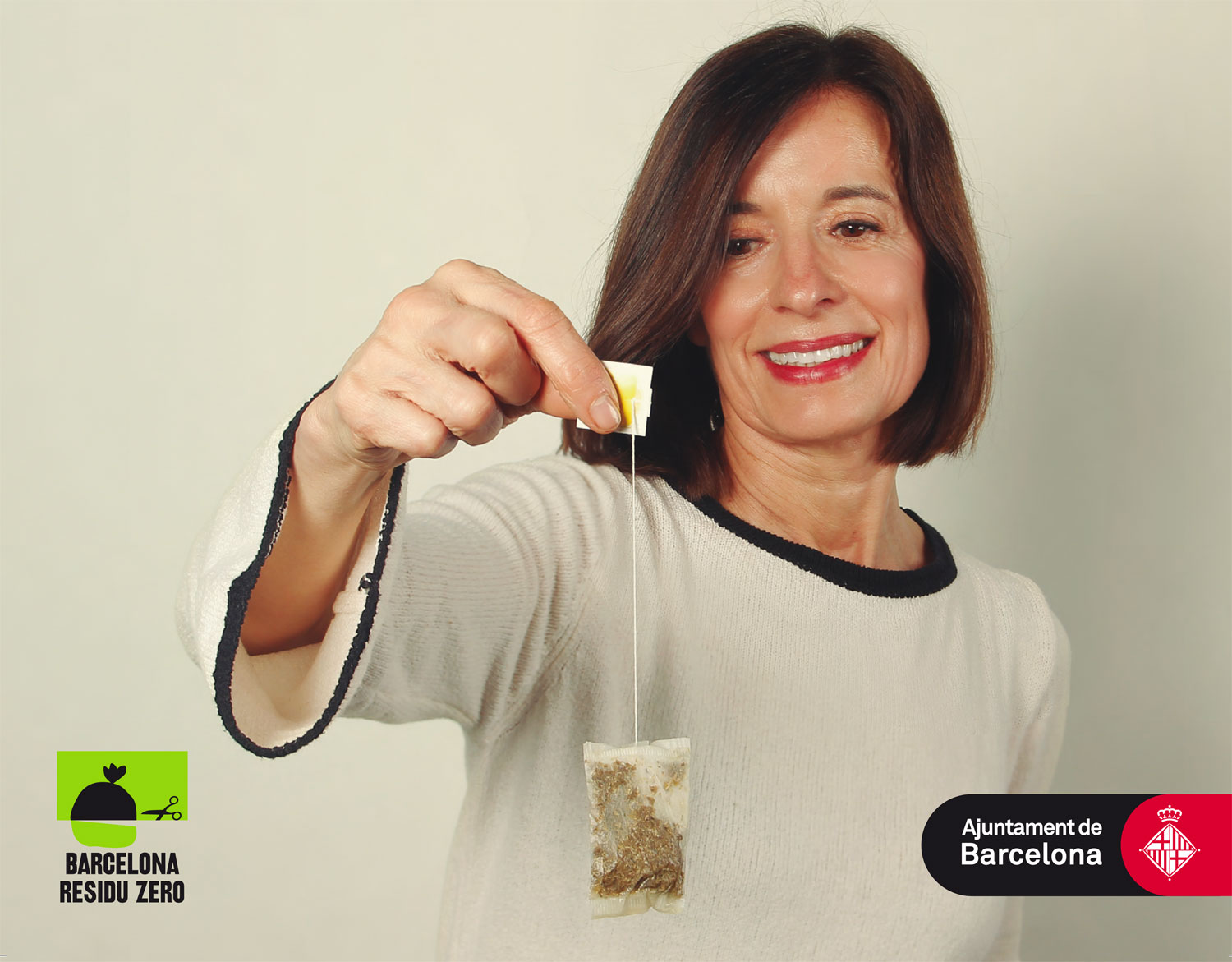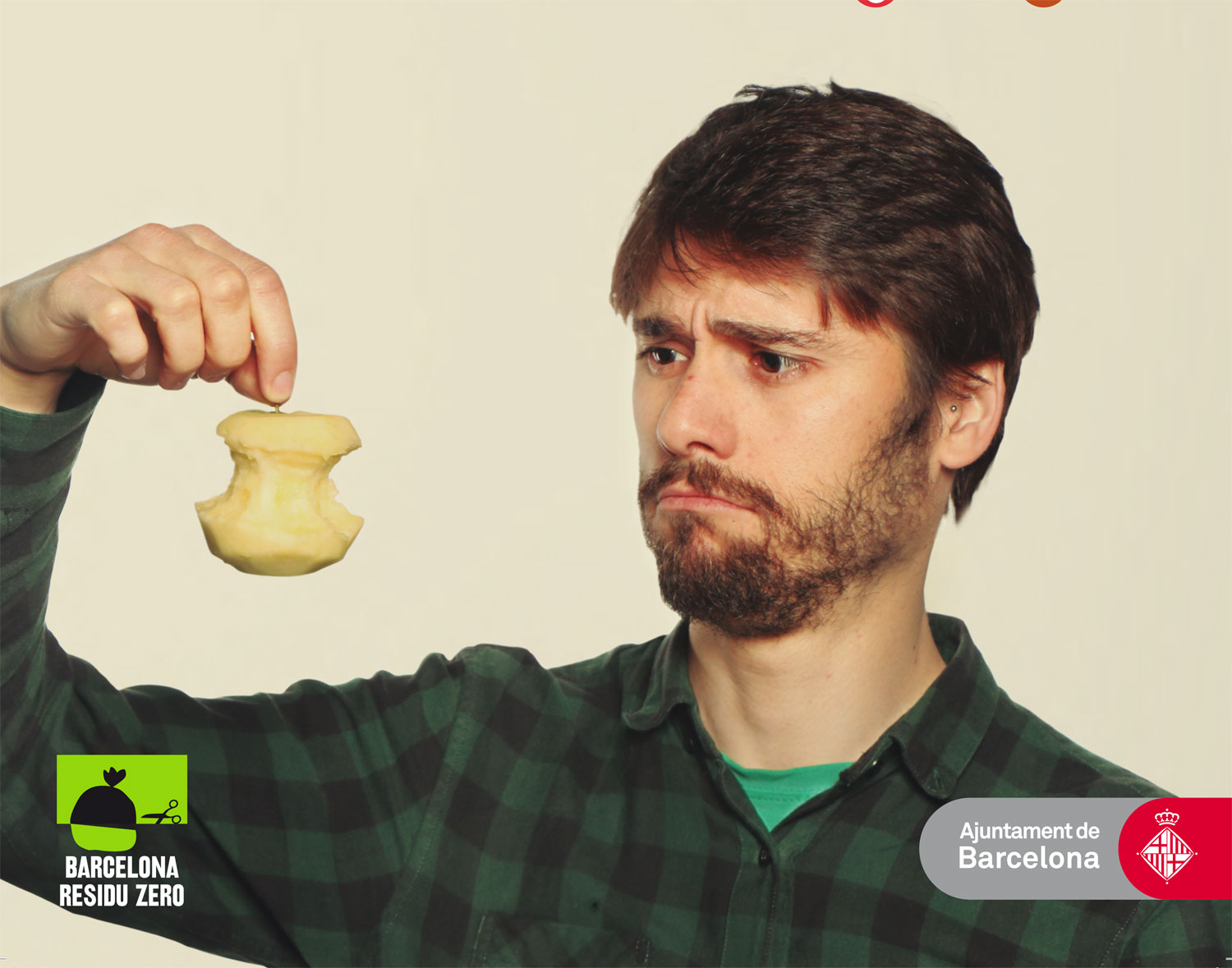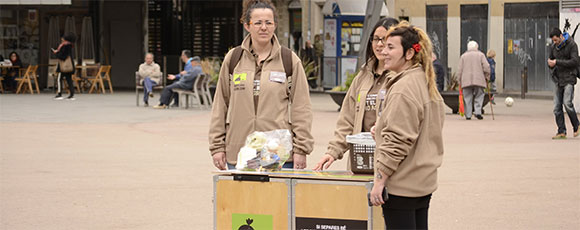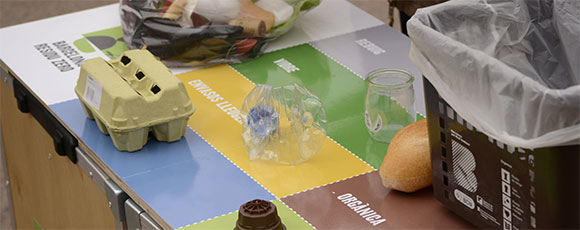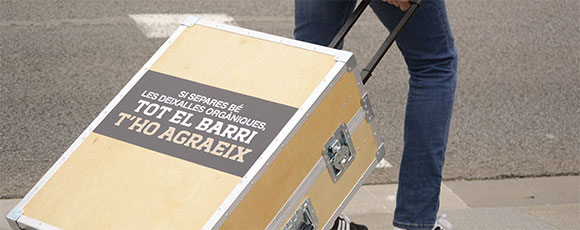- Home
- / Services
- / The city works
- / Education and awareness
- / Plan for Raising Awareness in Improving Organic-Waste Collections in Neighbourhoods
Plan for Raising Awareness in Improving Organic-Waste Collections in Neighbourhoods
Barcelona City Council is launching an awareness and communication campaign for the Plan for Raising Awareness in Improving Organic-Waste Collections, which is being pilot-tested in four of the city’s neighbourhoods, to improve organic waste collection both quantitatively and qualitatively.
Based on a preliminary study that took into account the neighbourhoods’ features and organic matter collection rates, the neighbourhoods chosen for the pilot test are La Barceloneta, Les Roquetes, El Putxet i Farró, and El Guinardó. These are four neighbourhoods with very different realities, as well as unequal results as regards organic waste collection.
Starting on 23 February, the campaign will last 5 months (until 21 July) and have 8 information officers - 2 for each of the neighbourhoods - and 2 coordinators. It is aimed at each resident as well as neighbourhood organisations and associations.
The Plan for Raising Awareness in Improving Organic-Waste Collections in Neighbourhoods takes the neighbourhood green points as its benchmark for environmental education.
Goals
- To identify and correct bad public practices with regard to separating out organic waste.
- To raise awareness among the target publics of the need for collaboration in waste separation, putting special emphasis on organic waste.
- To improve the quantity and quality of the organic waste collected in those neighbourhoods where the pilot test is being carried out.
Two compost points will be set up during the campaign, one in the La Barceloneta and the other in Les Roquetes, to encourage composting by local residents. Information leaflets will also be distributed to clear up any queries about how to separate out organic waste and the benefits that come with doing that correctly.
That means one of the factors this Plan takes into account is reducing the quantity of “unsuitables”, that is, waste deposited where it does not belong, in this case among organic waste.

